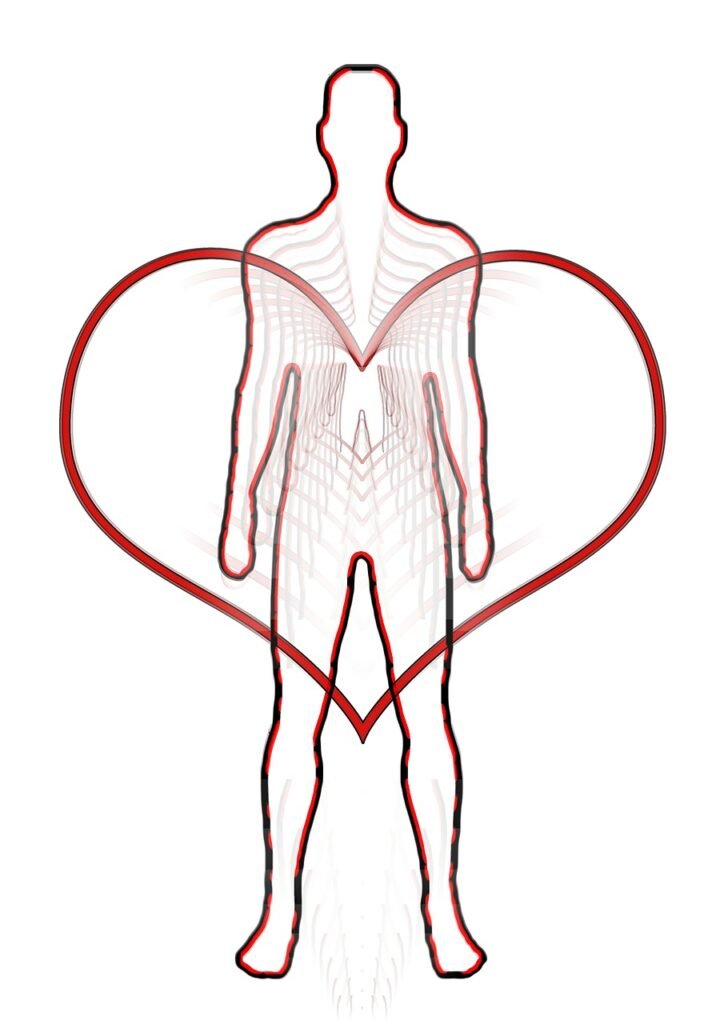Are you curious about how holistic approaches can effectively address health issues? In this article, we will explore the ways in which holistic methods can provide comprehensive solutions to various health concerns. By considering the interconnectedness of mind, body, and spirit, these approaches aim to promote overall wellbeing and address the root causes of health problems. Let’s delve into the world of holistic health and discover the transformative effects it can have on your overall wellness.
Overview of Holistic Approaches
Definition of Holistic Approaches
Holistic approaches to health focus on treating the whole person rather than just addressing the symptoms of specific health issues. This means considering the physical, mental, emotional, and spiritual aspects of an individual’s well-being. Holistic approaches recognize that these different aspects are interconnected and work together to influence overall health. By taking a holistic approach, various treatments and techniques can be used to promote balance and wellness in all areas of life.
Principles of Holistic Approaches
There are several principles that guide holistic approaches to health. First and foremost, holistic approaches emphasize the importance of treating the root cause of health issues, rather than simply managing symptoms. This involves looking beyond the surface level and considering the underlying factors that contribute to an individual’s health concerns.
Another principle of holistic approaches is the belief that individuals have the innate ability to heal themselves. Holistic practitioners work to support and enhance the body’s natural healing mechanisms, rather than relying solely on external interventions. This often involves empowering individuals to take an active role in their own health and well-being.
Holistic approaches also prioritize the individual as a whole, rather than focusing solely on the physical body or a specific health concern. This means considering the emotional, mental, and spiritual aspects of a person’s life and how these factors can impact their overall health and well-being.
Key Components of Holistic Approaches
Holistic approaches encompass a wide range of strategies and techniques to promote well-being. Some key components of holistic approaches include:
- Nutrition: Holistic approaches emphasize the importance of eating a balanced, whole-foods diet to support overall health and prevent disease.
- Exercise: Regular physical activity is seen as a vital component of holistic health, helping to strengthen the body, reduce stress, and improve mood.
- Alternative Therapies: Holistic approaches often incorporate alternative therapies such as acupuncture, herbal medicine, and energy healing to address health issues from a holistic perspective.
- Mind-Body-Spirit Connection: Holistic approaches recognize the interconnectedness of the mind, body, and spirit. Practices such as meditation, mindfulness, and yoga are often used to foster this connection and promote overall well-being.
- Environmental Health: The impact of the environment on health is considered in holistic approaches. Creating clean and natural surroundings is seen as important for promoting optimal well-being.
Understanding Health Issues
Types of Health Issues
Health issues can vary widely, ranging from acute conditions like the flu or a broken bone to chronic conditions such as diabetes or heart disease. Mental health issues, such as anxiety or depression, are also an important part of the overall spectrum of health issues.
Factors Contributing to Health Issues
A variety of factors can contribute to the development of health issues. These can include genetic predispositions, lifestyle choices, environmental factors, stress levels, and socioeconomic factors. Holistic approaches to health recognize the complexity of these factors and aim to address them in a comprehensive manner.
Impact of Health Issues on Well-being
Health issues can have a significant impact on an individual’s well-being. Physical health issues can cause pain, discomfort, and limitations in daily activities. Mental health issues can affect mood, cognition, and overall quality of life. Holistic approaches seek to address the impact of health issues on well-being by targeting not only the symptoms but also the underlying causes and contributing factors.

Integration of Mind, Body, and Spirit
Importance of Mind-Body-Spirit Connection
The mind, body, and spirit are interconnected, and the health of one aspect can impact the others. Holistic approaches recognize the importance of nurturing this connection to promote overall well-being. When the mind, body, and spirit are in harmony, individuals can experience improved physical health, mental clarity, emotional balance, and a greater sense of purpose and fulfillment.
Role of Emotions and Mental Health
Emotions play a significant role in overall health and well-being. Negative emotions and chronic stress can contribute to the development and progression of health issues. Holistic approaches address these factors by incorporating practices such as therapy, stress reduction techniques, and emotional healing to promote mental well-being and support overall health.
Power of Positive Thinking
Positive thinking is a key component of holistic approaches to health. Research has shown that a positive mindset can have a significant impact on physical health outcomes. By cultivating positive thoughts and beliefs, individuals can enhance their overall well-being and improve their ability to cope with health challenges.
Prevention and Holistic Health
Focus on Preventative Care
Holistic approaches to health place a strong emphasis on preventative care. This involves taking proactive steps to maintain health and well-being before the onset of illness or disease. Preventative care can include regular check-ups, screenings, vaccinations, and adopting healthy lifestyle choices.
Lifestyle Changes for Optimal Health
Adopting a healthy lifestyle is a central aspect of holistic approaches to health. This can involve making changes to diet, exercise habits, sleep patterns, stress management techniques, and social connections. By incorporating these lifestyle changes, individuals can reduce the risk of developing health issues and improve overall well-being.
Stress Reduction and Relaxation Techniques
Stress has a profound impact on health, and holistic approaches recognize the importance of stress reduction and relaxation techniques. Practices such as meditation, deep breathing exercises, yoga, and mindfulness can help individuals manage stress, improve sleep, and support overall health.

Nutrition and Holistic Health
Understanding Food as Medicine
Holistic approaches recognize the powerful role that food plays in promoting health and preventing disease. Food is seen as more than just fuel but as a form of medicine that can nourish and heal the body. Nutrient-dense whole foods, including fruits, vegetables, whole grains, lean proteins, and healthy fats, are emphasized in holistic nutrition.
Importance of Balanced and Whole Foods
A balanced and whole foods diet is a cornerstone of holistic approaches to health. This means consuming a variety of nutrient-rich foods in their unprocessed or minimally processed form. By focusing on whole foods, individuals can provide their bodies with the essential nutrients needed for optimal health and support overall well-being.
Holistic Approaches to Dietary Restrictions
Holistic approaches also address dietary restrictions and individual needs. For individuals with specific dietary requirements, such as gluten-free or vegan diets, holistic practitioners can offer guidance and support to ensure that nutritional needs are met while still adhering to personal preferences and restrictions.
Alternative and Complementary Therapies
Explanation of Alternative Therapies
Alternative therapies are non-conventional approaches to health and healing that are used alongside or instead of conventional medical treatments. These therapies can include acupuncture, chiropractic care, herbal medicine, homeopathy, naturopathy, and energy healing modalities such as Reiki. Alternative therapies are often used in holistic approaches to address health issues from multiple angles.
Common Complementary Therapies
Complementary therapies are practices that are used in conjunction with conventional medical treatments to enhance their effectiveness and support holistic healing. These therapies can include massage therapy, physical therapy, art therapy, music therapy, aromatherapy, and mindfulness-based stress reduction. By integrating conventional and complementary therapies, individuals can experience a more comprehensive and holistic approach to healing.
Integration of Conventional and Alternative Therapies
Holistic approaches seek to integrate conventional and alternative therapies to provide individuals with the best of both worlds. By combining evidence-based conventional treatments with complementary therapies, holistic practitioners aim to address health issues on multiple levels and promote optimal healing and well-being.

Exercise and Holistic Health
Exercise as an Essential Component
Exercise is a fundamental aspect of holistic health. Regular physical activity has numerous benefits for both physical and mental well-being. Exercise helps strengthen the body, improve cardiovascular health, boost immune function, enhance mood, reduce stress, and promote better sleep. Holistic approaches encourage individuals to find joyful and sustainable forms of exercise that they enjoy and can incorporate into their daily lives.
Benefits of Different Exercise Modalities
Different exercise modalities offer unique benefits and can be chosen based on individual preferences and needs. Aerobic exercises, such as running or swimming, improve cardiovascular health and endurance. Strength training exercises, such as weightlifting or bodyweight exercises, build muscle and improve bone density. Flexibility exercises, such as yoga or stretching, increase mobility and reduce the risk of injuries. Mind-body practices, such as tai chi or qigong, promote relaxation, focus, and balance.
Mindful Movement Practices
Mindful movement practices, such as yoga and tai chi, are particularly valued in holistic approaches to health. These practices combine physical movement with breath awareness and mindfulness, promoting a deep connection between the mind and body. Mindful movement practices can improve strength, flexibility, balance, and mental well-being. They are often used as tools for stress reduction, relaxation, and improving overall holistic health.
Environmental Factors and Health
Impact of Environment on Health
The environment can have a significant impact on an individual’s health. Factors such as air and water quality, exposure to toxins, noise pollution, access to green spaces, and exposure to natural light all play a role in overall well-being. Holistic approaches recognize the importance of creating clean and natural surroundings to support optimal health and prevent illness.
Importance of Clean and Natural Surroundings
Clean and natural surroundings are essential for holistic health. Creating a physical environment that is free of pollutants, toxins, and harmful substances can contribute to better respiratory health, reduced risk of allergies, and improved overall well-being. Access to green spaces and natural light also supports mental and emotional well-being, reducing stress and promoting a sense of calm and connection to nature.
Holistic Approaches to Environmental Health
Holistic approaches to health also extend to environmental health. Individuals are encouraged to be mindful of their impact on the environment and make choices that support both personal and planetary well-being. This can involve practices such as recycling, reducing waste, using eco-friendly products, and advocating for sustainable practices on a larger scale.

Holistic Approaches in Mental Health
Role of Holistic Therapies in Mental Health
Holistic therapies play a crucial role in supporting mental health and well-being. Traditional therapeutic approaches, such as cognitive-behavioral therapy (CBT), are often complemented by holistic practices to provide a more holistic and comprehensive approach to mental health. Holistic therapies, including mindfulness-based therapies, art therapy, music therapy, and yoga therapy, can help individuals manage stress, improve mood, enhance self-awareness, and promote overall mental well-being.
Mindfulness and Meditation
Mindfulness and meditation are powerful tools used in holistic approaches to mental health. These practices involve paying attention to the present moment, without judgment or attachment to thoughts or emotions. Mindfulness and meditation can help individuals develop greater self-awareness, reduce stress, improve focus, and cultivate a sense of inner calm. Research has shown that mindfulness and meditation can have significant positive effects on mental health outcomes.
Self-care and Holistic Mental Well-being
Self-care is an integral part of holistic approaches to mental well-being. It involves taking intentional actions to care for one’s own mental, emotional, and physical needs. Self-care practices can include activities that promote relaxation, healthy boundaries, healthy relationships, adequate sleep, good nutrition, and engaging in activities that bring joy and fulfillment. By prioritizing self-care, individuals can support their overall mental well-being and prevent the development of mental health issues.
Conclusion
Holistic approaches to health offer a comprehensive and multifaceted approach to addressing health issues and promoting overall well-being. By considering the mind, body, and spirit as interconnected aspects, holistic approaches recognize that true healing involves addressing the root causes of health issues and supporting the body’s innate ability to heal itself. With a focus on preventative care, balanced nutrition, regular exercise, stress reduction, and integration of conventional and alternative therapies, holistic approaches provide individuals with a holistic roadmap to optimize their health and well-being. By embracing a holistic mindset and incorporating these principles into daily life, individuals can experience improved physical health, enhanced mental well-being, and a greater sense of overall vitality.



